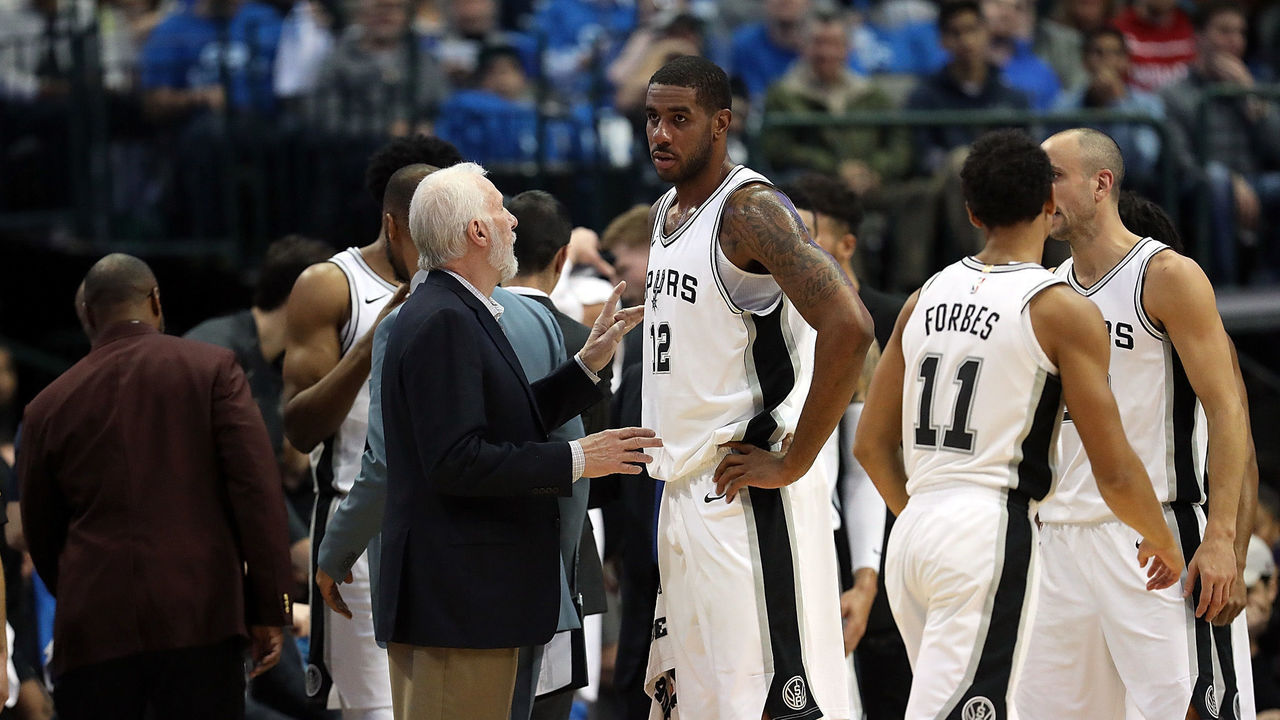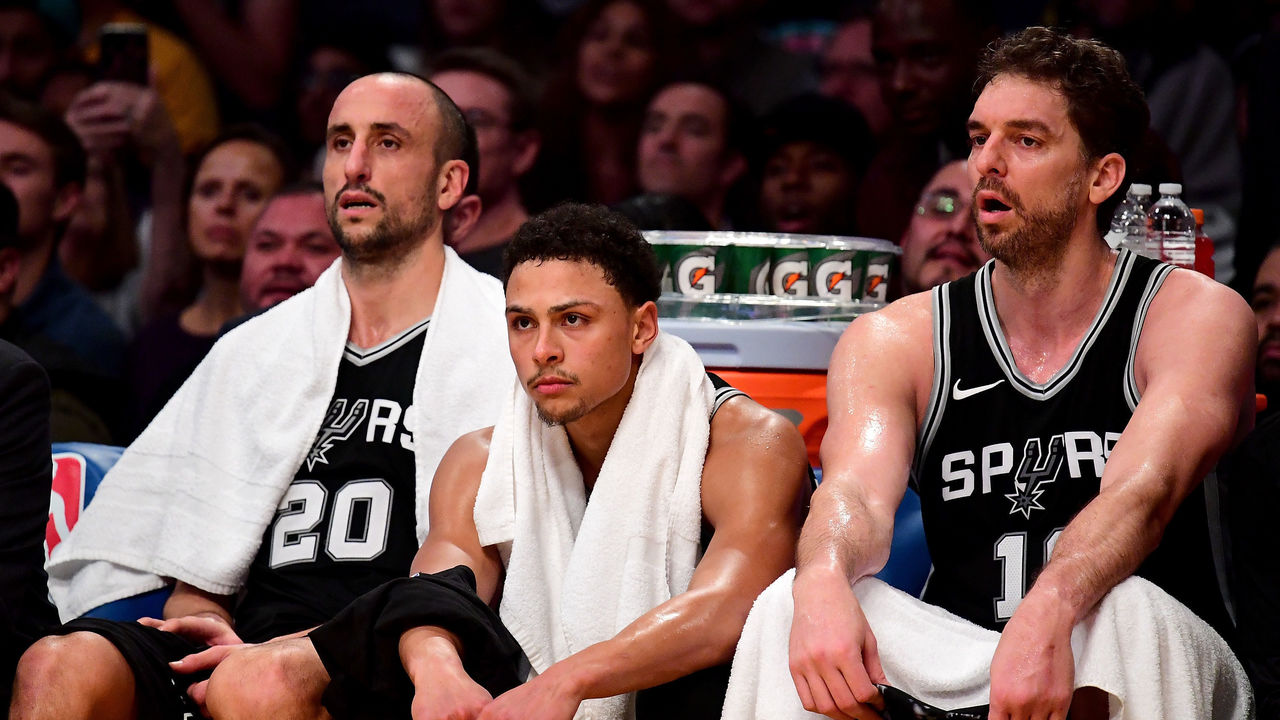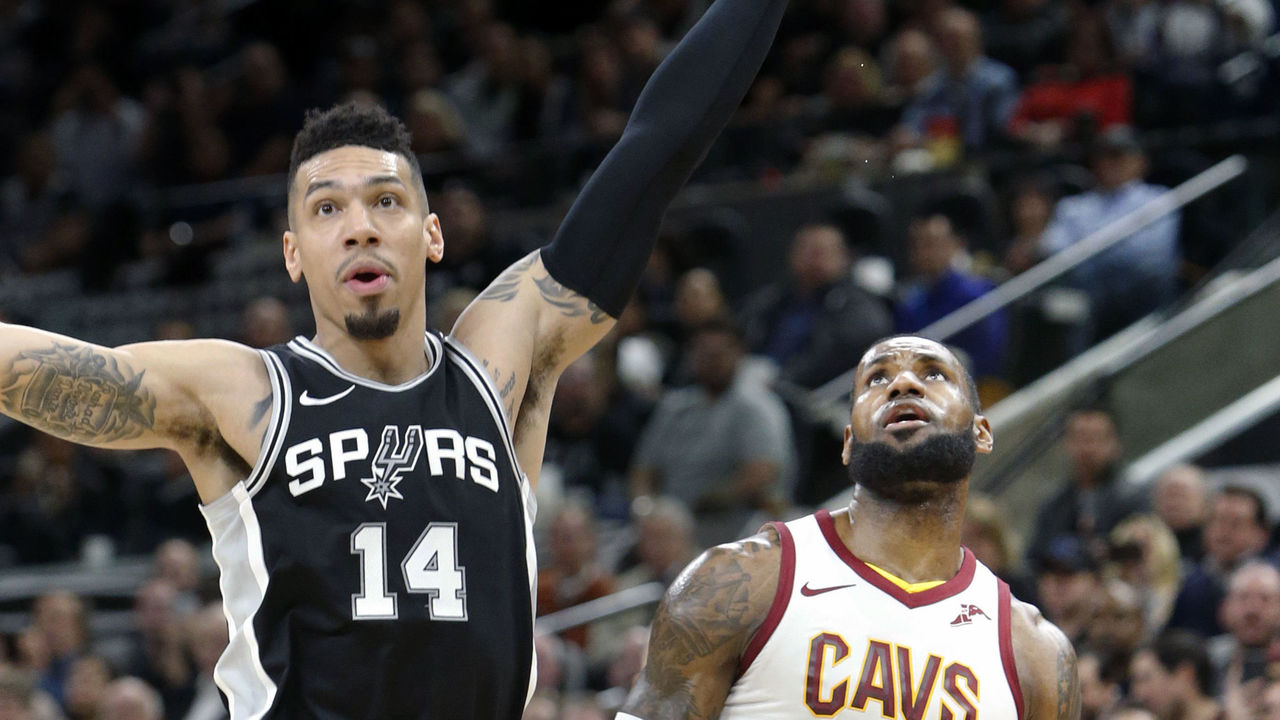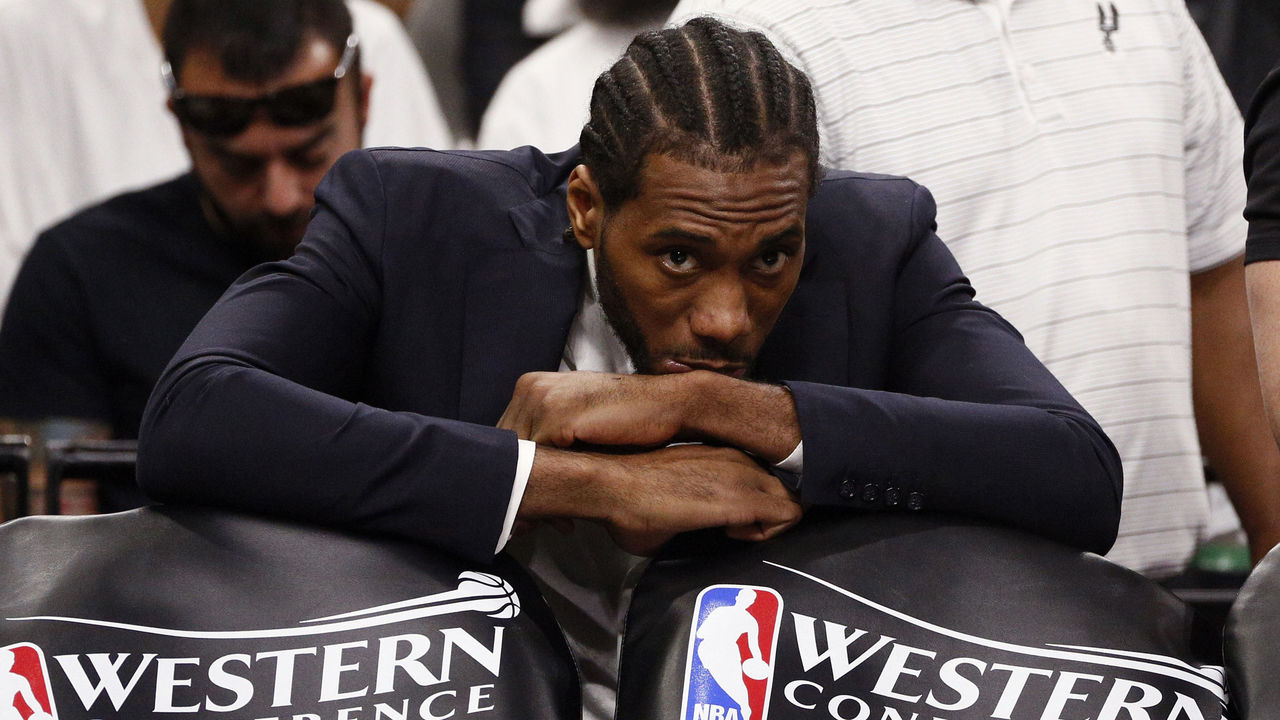Is this the year the Spurs' run of 50-win seasons finally ends?
There is nothing objectively special about winning 50 games in the NBA. In an 82-game season, that equates to a .610 winning percentage - a strong but unspectacular and insignificant mark. Though it appeals to our love of round-number demarcation, a 50-win team is rarely qualitatively better than a 49-win team.
But there's no denying that a 50-win season has become a stamp of NBA credibility. The Washington Wizards haven't reached the mark in 39 years. Until two years ago, the Toronto Raptors had never done it in their franchise's then-21-year history. It took the Clippers franchise 42 years before finally cracking the 50-win plateau in 2013. The Nets have done it exactly once since moving from the ABA to the NBA in 1976.
Then there are the San Antonio Spurs. The Spurs have won at least 50 games in each of the last 18 seasons, a ridiculous stat that somehow still undersells their sustained success. The last year they won fewer than 50 was the lockout-shortened 1998-99 season, when they went 37-13 and won the title; they've won at least 56 games in 13 of those 18 seasons, and won at least 60 in six of them; they even managed to get 50 in the 66-game 2011-12 season. Their millennia-spanning streak has been an NBA record for a while (it's gone on six years longer than the next-best such run), and in the past 18 years alone, the Spurs have recorded more 50-win seasons than all but three NBA franchises have in their entire histories.

Sustaining the streak has required near-flawless basketball engineering. Everything about the organization - every piece of the machinery, every brick in the foundation - has had to be aligned. It's required a perfect alchemy of foresight, asset management, and basketball culture: hitting on draft picks in the late first round or in the second round; trawling the international talent pool; scavenging for undervalued role players; developing those draft picks and castoffs in a dynamic talent incubator; tailoring the way the team plays to the personnel on the roster; emphasizing depth; resting players and suppressing workloads to stay fresh and healthy; taking the long view at every turn.
But sometimes, doing all those things right isn't enough. Eventually, you just get unlucky, or the formula is a little bit off, or a piece of the machinery breaks and can't be replaced. The Spurs have avoided that fate for two decades, but their incredible streak is very much in jeopardy. They enter the All-Star break at 35-24, needing to go 15-8 the rest of the way to make it a 19th straight 50-win campaign.
For most any Spurs team of the 21st century, that would be a cakewalk - but this version is injured, old, and glaringly deficient in the talent department. They've lost five of their last six games, are 10-13 over their last 23, and their offense ranks 20th in the league since the start of 2018. They're getting fewer shots at the rim than all but three teams, and they aren't compensating with other efficient shots; they rank 26th in 3-point attempt rate, and 23rd in free-throw rate. They drive to the basket a healthy amount, but only four teams produce fewer points on drives. They're taking a ton of midrange shots, and while that's been a staple of their offense since LaMarcus Aldridge came aboard three years ago, they're not shooting them nearly as effectively as they once did. The small patch of fabric they've stretched across 59 games is starting to fray.

Not reaching 50 wins wouldn't make this season a failure by any measure. The fact the Spurs even have a chance to get there again is a borderline miracle. Kawhi Leonard - a two-time Defensive Player of the Year, and a perennial MVP candidate - has played in just nine games. Their second-best player, Aldridge, spent most of last season looking like a shell of his former self, before asking to be traded in the summer.
The team's biggest offseason moves were adding Rudy Gay - a ball-stopping scorer coming off an Achilles tear - and signing earthbound 37-year-old Pau Gasol for three more years. Longtime staples Tony Parker and Manu Ginobili are 35 and 40, respectively. And yet - behind a rejuvenated Aldridge, the continued effectiveness of Gasol, Ginobili, and Parker, the reliable 3-and-D stylings of Danny Green, the emergence of Dejounte Murray and Kyle Anderson, and their latest cadre of found-money role players on the fringes - they're the No. 3 team in the Western Conference, with the NBA's second-ranked defense.
It's easy to believe they'll find a way to eke out those 15 wins, because Gregg Popovich is a warlock and the Spurs always find a way. They'll still defend with preternatural discipline. They'll still move better without the ball than any team. They'll still pass beautifully, vacuum up rebounds, and perform brilliantly in the clutch. They have recent precedent on their side, too. Around this time in 2015, the Spurs were in just about the same spot - at 34-23, with a plus-2.9 point differential (actually slightly worse than the plus-3.1 they're currently carrying) - and went 21-4 to finish that season, outscoring opponents by an average of 13.6 points per game. But they don't have Tim Duncan this time, and they may not have Leonard, either. They are older, and slower, and have shown more cracks. And, most pertinently, their remaining schedule is absolute murder.

Eighteen of the Spurs' final 23 games come against teams that currently have winning records. Against such teams this season, they're 12-19. They get four more combined against the Warriors and Rockets; two more against the Thunder; one against the revamped Cavaliers; one against the Timberwolves, two against the Wizards; another dreaded road game in Denver; another meeting with the red-hot Jazz (who are 3-0 against them this season); one against the surging post-Kidd Bucks; and five combined against the Clippers, Pelicans, and Trail Blazers, all of whom will be fighting for their playoff lives.
It will help that the Spurs have 13/10 home-road split the rest of the way, but that won't insulate them from a closing stretch that Basketball Reference ranks as the most difficult for any team in the league. BR projects them to finish with 48 wins. ESPN's model predicts the same total. FiveThirtyEight has them finishing with 47. Since they're just two games up on the ninth-place Clippers in the loss column, and just 4 1/2 games ahead of the Jazz - who've won 11 straight, and have one of the most favorable remaining schedules in the NBA - even the Spurs' 20-year playoff streak isn't entirely safe.

Leonard's return is the X-factor that could render all those projections obsolete. But there haven't been any encouraging progress reports regarding his mysterious quad injury, and if or when he comes back, there's no telling whether he'd be even close to 100 percent. The Spurs are assuredly more concerned with his long-term health, so even if he does return, his workload will likely be similar to that in his nine-game stint in December and January, when he played just 23.3 minutes per game.
Because of that lightened load and his diminished physical state, Leonard wasn't able to make his usual impact. The Spurs went just 5-4 in games he played, and performed no better with him on the floor than they've done without him. And we haven't even mentioned the recent knee injury to Aldridge, the lingering heel injury to Gay, and the foot injury Ginobili suffered just before the break. At a certain point, maybe it's just not your year.
Even for the Spurs, nothing lasts forever.